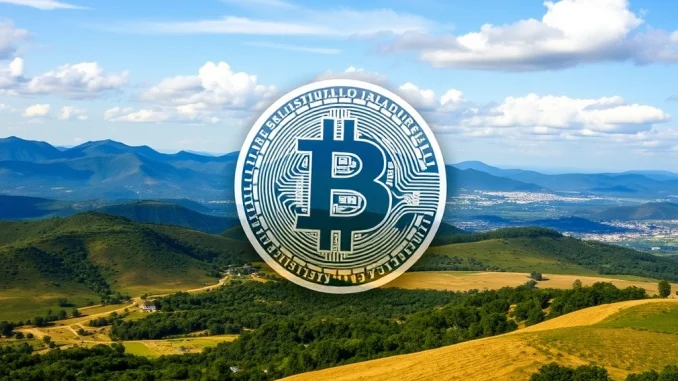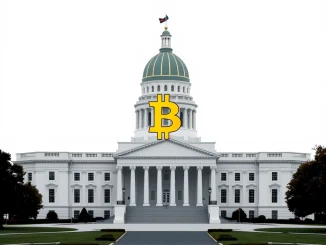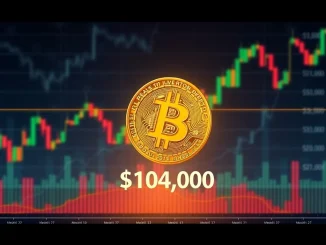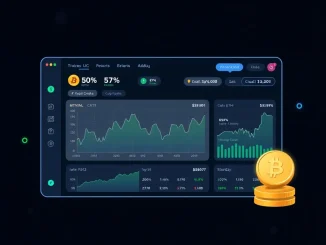
The ongoing story of **El Salvador Bitcoin** adoption continues to capture the world’s attention. Since becoming the first country to make Bitcoin legal tender in September 2021, El Salvador has maintained a public commitment to accumulating the cryptocurrency. This strategy, spearheaded by President **Nayib Bukele**, has faced significant international scrutiny, particularly from the International Monetary Fund (**IMF El Salvador**).
Why is El Salvador Still Making Bitcoin Purchases?
Despite entering into a $1.4 billion loan agreement with the IMF, which reportedly included conditions to scale back the country’s exposure to Bitcoin and improve fiscal stability, El Salvador has shown no signs of halting its **Bitcoin purchases**. The nation’s dedicated Bitcoin Office has openly shared updates on social media platforms, indicating that the government is still actively adding BTC to its reserves.
This apparent contradiction raises questions among observers and potential investors about the country’s compliance with the terms of the IMF loan. However, the government’s stance remains firm.
Nayib Bukele’s Enduring Commitment to Bitcoin
Economy Minister María Luisa Hayem recently reinforced the government’s position in an interview. She stated unequivocally that President **Nayib Bukele** remains committed to the strategy of accumulating assets, with Bitcoin being a central piece of this vision. Hayem emphasized that BTC is considered an important, long-term project for the country.
Furthermore, the Minister noted that asset accumulation isn’t limited to the government. The private sector in El Salvador is also increasingly involved in acquiring digital assets, signaling broader confidence or participation in the country’s digital asset strategy beyond just the state’s actions.
The IMF’s Stance vs. El Salvador’s Bitcoin Adoption Strategy
The IMF has consistently expressed concerns about El Salvador’s Bitcoin strategy, citing risks to financial stability, consumer protection, and fiscal sustainability. Their recommendations have included removing Bitcoin’s legal tender status and scaling back the state’s **Bitcoin purchases**.
As part of the loan agreement, El Salvador did make certain pledges, including improving its fiscal accounts and allowing businesses to choose whether or not to accept BTC, rather than mandating it for all transactions. While these steps address some IMF concerns, the continued state-led acquisition of Bitcoin appears to be a point of ongoing tension.
Here’s a quick look at the key points of conflict and El Salvador’s response:
- IMF Concern: Risks from Bitcoin price volatility.
- El Salvador’s Response: Views BTC as a long-term asset to accumulate during dips.
- IMF Concern: Fiscal risks from state Bitcoin holdings and infrastructure costs.
- El Salvador’s Response: Focus on improving overall fiscal accounts; sees potential future gains offsetting costs.
- IMF Recommendation: Scale back state purchases.
- El Salvador’s Action: Continues to announce purchases, citing commitment to accumulation.
- IMF Recommendation: Remove legal tender status.
- El Salvador’s Action: Maintained legal tender status but allowed businesses choice in acceptance.
What Does This Mean for Bitcoin Adoption in El Salvador?
The government’s unwavering stance on **Bitcoin adoption** and accumulation, despite external pressure, signals a deep-seated belief in the cryptocurrency’s potential role in the nation’s future. For proponents, this is a sign of strong conviction and leadership from **Nayib Bukele**. For critics and international bodies like the IMF, it represents a potentially risky gamble that could impact the country’s financial stability and access to traditional international finance.
The continued public announcement of **Bitcoin purchases** serves multiple purposes for the Salvadoran government:
- Reinforces commitment to the Bitcoin standard domestically and internationally.
- Signals confidence in Bitcoin’s long-term value proposition.
- Potentially attracts Bitcoin-focused investment and tourism to the country.
However, it also keeps the country at odds with major financial institutions, which could impact future access to funding and international economic relations. The balance between pursuing an innovative digital asset strategy and adhering to the norms of traditional global finance remains a critical challenge for **El Salvador Bitcoin** experiment.
Summary: El Salvador Holds Firm on Bitcoin Strategy
In conclusion, El Salvador’s decision to continue its **Bitcoin purchases** is a clear indication that President **Nayib Bukele** and his administration remain committed to their pioneering **Bitcoin adoption** strategy, even when faced with pressure from institutions like the **IMF El Salvador**. While the country has made some concessions related to the IMF loan agreement, the core policy of accumulating BTC assets appears unchanged. This path highlights El Salvador’s determination to forge its own economic destiny using digital assets, setting a precedent that the world watches with keen interest.



